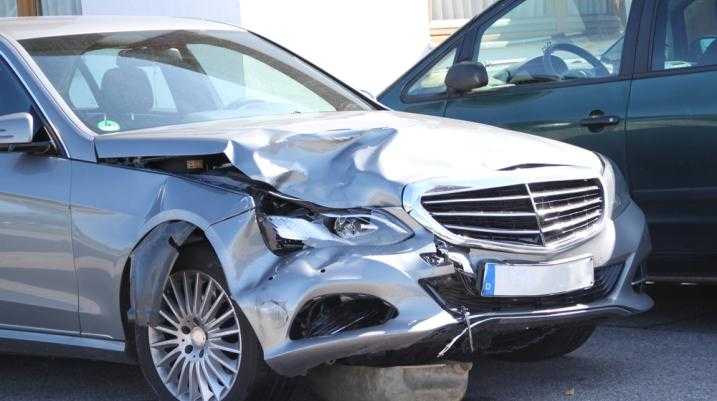Which States Have the Highest Car Accident Rates?

Car accidents are an unfortunate reality of modern life, causing not only significant property damage but also serious injuries and even deaths.
While car accidents occur nationwide, some states consistently report higher rates of incidents. This can be due to various factors, such as population density, weather conditions, and infrastructure.
It’s important to know which states have the most car accidents so you can navigate the roads with extra precaution when driving through those areas.
It’s also good to know that when the unfortunate happens, Morgan & Morgan is here for you. If you or a loved one has been injured in a car accident that wasn’t your fault, contact us today for a free case evaluation to learn more about your legal options. You may be owed compensation.
Understanding Car Accident Rates
Before delving into the specifics, it's important to understand how car accident rates are calculated. Common metrics include:
- Accidents per 100,000 population: This standardizes the rate based on state population.
- Fatalities per 100 million vehicle miles traveled (VMT): This accounts for the amount of driving activity.
- Insurance claims data: These highlight states with frequent vehicle damage claims.
Factors influencing accident rates include driver behavior, road conditions, traffic congestion, and enforcement of traffic laws.
Top States With the Highest Car Accident Rates
1. Mississippi
Mississippi is the state with the most deaths per 100,000 people from car accidents.
According to a study from World Population Review, Mississippi ranks fourth for worst road conditions in the nation. The study claims that 30% of Mississippi roads are in poor condition, and 11% of its bridges are structurally deficient.
2. Wyoming
While Wyoming only reported 114 fatal crashes in 2020, it had a death rate of 22 per 100,000 people.
Wyoming’s standing is largely related to the state’s drunk driving accident numbers. According to the Wyoming Department of Transportation, Wyoming reported 772 crashes involving alcohol and 38 fatalities from alcohol-related crashes. These stats make Wyoming the top state for drunk-driving-related incidents, despite having the smallest population.
3. Arkansas
Arkansas totaled 21.2 deaths per 100,000 people in 2020, placing it third on the list.
According to Arkansas Online, this rise represented a 24.9% increase in fatal car crashes from 2019 to 2020—the third largest increase in the nation. The increase was due to a rise in speeding and intoxicated driving, according to the Arkansas Department of Transportation.
4. South Carolina
South Carolina reported 962 fatal crashes in 2020 and a death rate of 20.7%. While South Carolina takes the fourth spot for deaths per 100,000 people from car accidents, it is number one for deaths per 100 million miles traveled per vehicle.
According to a Consumer Affairs study, South Carolina has some of the worst roads in the country, with 12% of urban South Carolina roads having rough pavement.
5. Montana
Montana ranks highly for both death rate and deaths per miles traveled. Montana is also one of the most dangerous states for drunk driving, with 66% of vehicle fatalities coming as a result of impaired driving.
Montana reported 3,563 crashes involving animals in 2020, 10 of which resulted in fatalities.
Frequently Asked Questions
What are the most common causes of car accidents in the U.S.?
From the thousands of cases we’ve handled, these accidents often occur due to distracted driving (especially using a cell phone or navigation system while driving), speeding, driving under the influence of alcohol or drugs, reckless driving, faulty car parts, and poor weather conditions. More than half of the time, negligence is usually a contributing factor, which explains the need for accountability.
Will my health insurance cover my medical expenses?
Yes, in most cases, your health insurance would cover your medical expenses after a car accident, but only up to a certain limit. Also, this depends on the specifics of your health insurance plan. Even so, note that your health insurance may seek reimbursement from any settlement or judgment you receive from an auto insurance claim or lawsuit related to the accident.
Who can I file a claim against if involved in a car accident?
Each case is unique, but generally, you can file a claim against the at-fault driver's insurance company. If the other driver is uninsured or underinsured or if the accident occurred in a no-fault state like Florida or Arkansas, you may need to file a claim with your own insurance carrier.
Additionally, claims can also be made against entities responsible for vehicle defects, such as a vehicle parts manufacturer, a reckless mechanic, or even an establishment that overserved alcohol to the driver who caused the accident.
Can I recover damages if I was partly at fault?
Yes, but that also depends on your state's laws. Most states follow a comparative negligence rule, where your compensation may be reduced by your percentage of fault. However, in a few states with contributory negligence laws, such as Virginia, North Carolina, Maryland, and Alabama, if you are even slightly at fault, you may not be able to recover any compensation.
What if I lost a loved one in the accident?
In such an unfortunate event, you might be entitled to file a wrongful death claim against the at-fault party and recover compensation through their insurance carrier. This type of claim can provide compensation for funeral and burial expenses, lost income and benefits, loss of companionship, and emotional distress, among other case-specific damages.
The bottom line is if someone else’s negligence caused your accident or injury, contact Morgan & Morgan today for a free case evaluation. You shouldn’t have to bear the burden of someone else’s mistake. Take action and learn more about your legal options.
Injured? Getting the compensation you deserve starts here.

Injured?
Not sure what to do next?
We'll guide you through everything you need to know.
